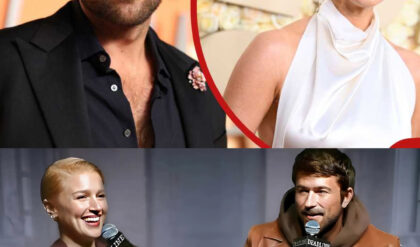Pastor Gino Jennings Criticizes Lil Nas X for Mocking Christianity
Pastor Gino Jennings, a prominent and often controversial figure in Christian circles, has publicly condemned rapper Lil Nas X for what he describes as blasphemous and satanic behavior.

His critique is part of a broader sermon addressing what he sees as a moral and spiritual decline in modern entertainment and society.
Jennings’s criticism of Lil Nas X centers on the rapper’s provocative artistic choices, particularly the “Montero (Call Me By Your Name)” music video.
The video features Lil Nas X sliding down a stripper pole from heaven to hell, where he gives a lap dance to Satan. This imagery, along with the release of “Satan Shoes”—a custom sneaker allegedly containing human blood and adorned with satanic symbols—has drawn widespread outrage from Christian communities. Jennings views these acts as intentional mockery of God and Christianity.
In his sermon, Jennings argued that Lil Nas X’s actions represent more than artistic expression; he sees them as deliberate attempts to normalize immorality and undermine traditional Christian values.

“You only have the breath in your nostrils because of God, yet you mock Him,” Jennings declared, emphasizing that such behavior would lead to divine judgment. He accused Lil Nas X of openly celebrating sin and glorifying rebellion against God, warning that such actions contribute to a broader cultural acceptance of ungodliness.
Beyond Lil Nas X, Jennings criticized the entertainment industry as a whole, describing it as increasingly hostile to Christianity and godliness.
He lamented the rise of satanic imagery in music, movies, and other forms of media, claiming they encourage rebellion against divine principles. Jennings singled out entertainers who use their platforms to promote what he perceives as depravity, asserting that their influence is particularly dangerous for impressionable young audiences.
Jennings extended his critique to parents, urging them to take responsibility for protecting their children from such cultural influences. He argued that celebrities like Lil Nas X have a profound effect on young minds, often leading them astray.

“Children are mimicking these behaviors and adopting these values,” Jennings warned, stressing the importance of instilling biblical principles at home. He called on parents to monitor their children’s media consumption and teach them the “unchanging truths of scripture” to guard against spiritual corruption.
Lil Nas X, however, has responded to these criticisms in his own way. While the rapper acknowledges that his work is provocative, he has denied any intention to attack Christianity.
In a statement, he expressed his desire to promote love and bring people together through his art, asserting that he is not “some evil demon guy” trying to destroy traditional values. Instead, Lil Nas X argued that his work challenges societal norms and empowers marginalized communities, including LGBTQ+ individuals.

The divide between Jennings and Lil Nas X reflects broader cultural tensions over faith, morality, and artistic freedom.
While Jennings interprets the rapper’s actions as an affront to Christianity, supporters of Lil Nas X see his work as a bold critique of societal hypocrisy and a celebration of self-expression. This ongoing debate raises questions about the role of religion in modern culture and the boundaries of artistic expression.





